10 Christmas Carols that Tell the Real Story of Christmas

The first few notes of “O Holy Night,” and the Peanuts singing, “Hark! The Herald Angels Sing” stir the true spirit of Christmas in our souls. We feel this way because many of the Christmas Carols that have become part of the tapestry of our every December, are woven from the very One who was, is, and always will be. We sing songs that have been passed down and formed from the way God’s Word moved someone’s heart to put a tune to it.
In a world full of commercialism, especially around Christmastime, we need Hebrews 4:12. “For the word of God is alive and active. Sharper than any double-edged sword, it penetrates even to dividing soul and spirit, joints and marrow; it judges the thoughts and attitudes of the heart.” Though we might not all be the best at memorizing Scripture, human nature often lends the success of our memory to song. As children, we learn our ABC’s by singing them!
The gospel of John reminds us, “In the beginning was the Word, and the Word was with God, and the Word was God. He was with God in the beginning.” Jesus is the Word, and the reason for the Christmas season.
Photo credit: ©Getty Images/RamilF
1. The First Noel
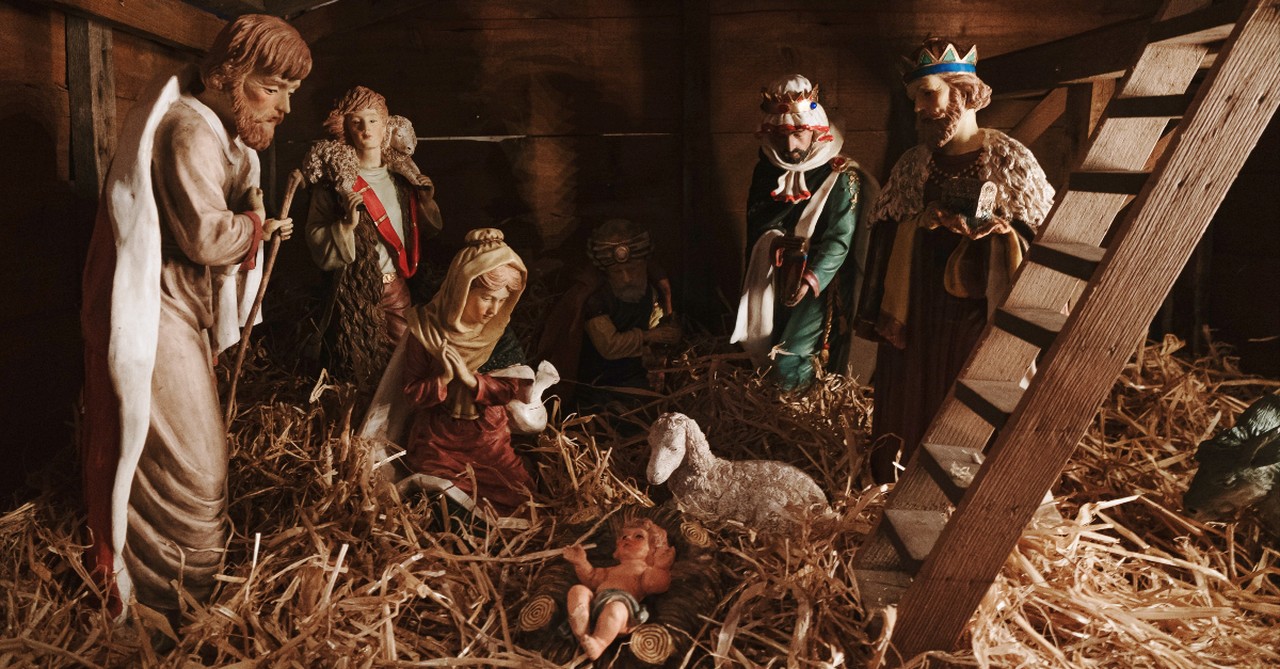
1. The First Noel
SLIDE 1 OF 10
“Noel” derives from the Latin verb “nasci,” to be born, and eventually trickled down into the French reference to the Christmas holiday. Defined, it literally means, “a Christmas carol” (Merriam Webster). The very world “Noel” is synonymous with Christmas.
It’s quite possible that the tune of this song has been played since the 1200s. Davies Gilbert added the lyrics in the 1800s, and it was published in 1823. The song retells the story from Luke 2 of the angels telling the shepherds in the field of the Savior being born, and the wise men following that same star to bring Him gifts.
Embracing Noel sends us traveling back to an ancient era, where our timeless Savior was born. The word used to describe the day of His birth became an anthem in celebration of the day of His birth. Though the angels sang in celebration of His birth first, we get to share in that joy of His coming by singing along today.
Photo credit: ©Unsplash/Alasdair Elmes
2. O Come, O Come, Emmanuel
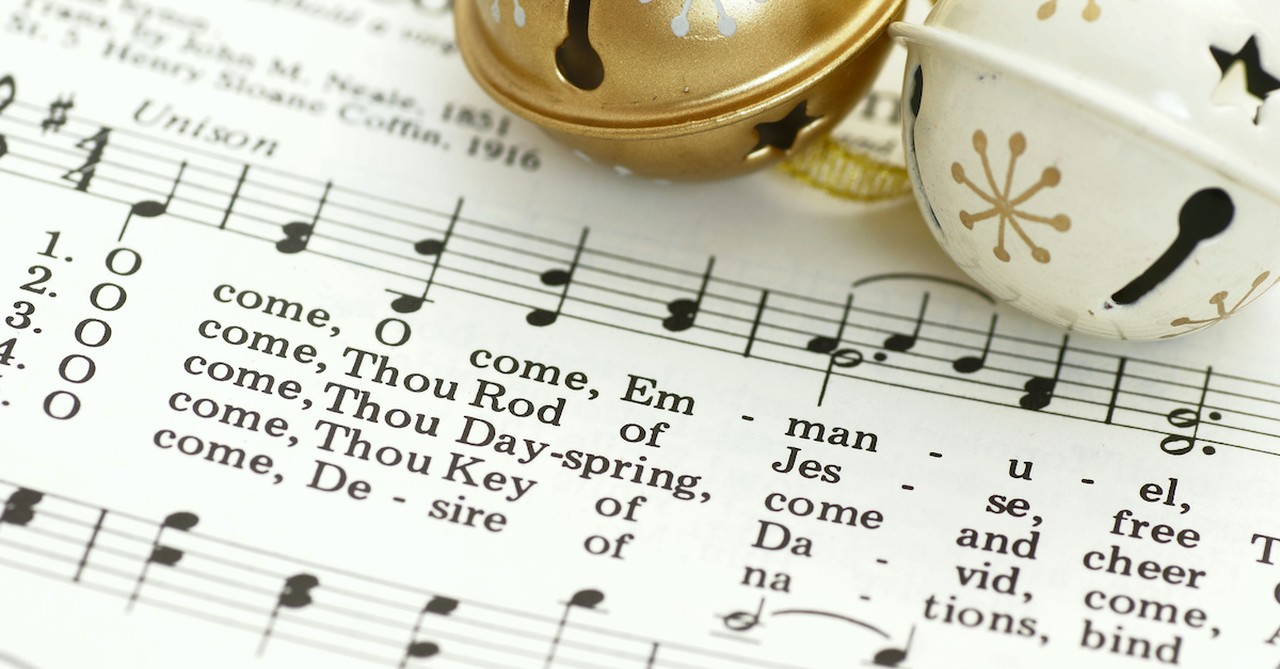
2. O Come, O Come, Emmanuel
SLIDE 2 OF 10
Historically an Advent song, “O Come, O Come, Emmanuel” exudes the angst of a people waiting for their Savior. With references to the Rod of Jesse and the Key of David, it envelopes the Old Testament prophecies of Jesus Christ, which brings the New Testament into an even brighter light.
The first verse of the song speaks of the Son of God appearing. When we sing this classic Christmas carol, we are lauding the Lord over stanzas of Scripture that took over 800 years to be fulfilled. Isaiah spoke of the Messiah’s birth around 740-680 BC: “Therefore the Lord himself will give you a sign: The virgin will conceive and give birth to a son, and will call him Immanuel” (Isaiah 7:14). Centuries later, Matthew recorded these words: “The virgin will conceive and give birth to a son, and they will call him Immanuel” (which means “God with us”; Matthew 1:23).
Photo credit: ©GettyImages/MKucova
3. Joy to the World

3. Joy to the World
SLIDE 3 OF 10
Isaac Watts penned the lyrics to “Joy to the World,” but God Himself ordained the Scripture that is referenced throughout its stanzas. Psalm 98, Psalm 96:11-12 and Genesis 3:17-18 are all embraced in the beautiful truth of what Christmas is really about. Since 1719, we’ve had a melody to weave around the embrace of these promises. They are timeless and without boundary.
“And so, let the heavens resound in gladness! Let joy be the earth’s rhythm as the sea and all its creatures roar. Let the fields grow in triumph, a grand jubilee for all that live there. Let all the trees of the forest dig in and reach high with songs of joy before the Eternal” (Psalm 96:11-12).
“Joy to the World” is a repetition of God’s promises; ones that we need to repeat to ourselves far beyond the Christmas season. The very definition of the word, “joy,” is “a source or cause of delight” (Merriam-Webster). “He reigns with truth and grace.” He is righteous, He has come, and sits at the right hand of the Father with authority.
Photo credit: ©GettyImages/RamilF
4. God Rest Ye Merry, Gentlemen

4. God Rest Ye Merry, Gentlemen
SLIDE 4 OF 10
In Mark 2, Jesus tells a demon to be quiet, and to come out of a man. They have no choice but to bow under His authority. Christmas was a turning point in God’s plan for our freedom. Out of the 16th century, a carol was birthed to sing praise to happiness! “Merry” sprints past the laughter shared at the expense of a stunt gone wrong or a hilarious joke … it’s a state of pure joy!
“Let nothing you dismay,
For Jesus Christ our Savior
Was born upon this Day.”
In the push of commercialism, we forget how happy we are supposed to be. Jesus has come, “To save poor souls from Satan’s power…” as John 3:16 assures us: “For God expressed His love for the world in this way: He gave His only Son so that whoever believes in Him will not face everlasting destruction, but will have everlasting life.”
Photo credit: ©GettyImages/Pink_frog
5. O Little Town of Bethlehem
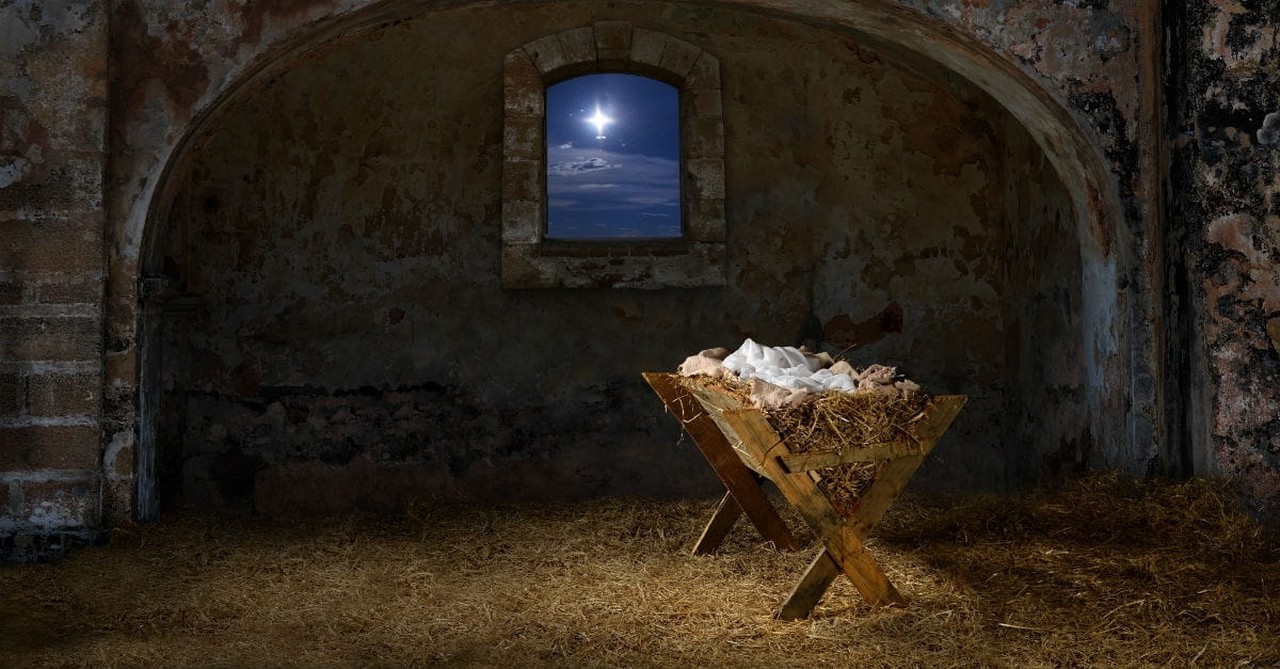
5. O Little Town of Bethlehem
SLIDE 5 OF 10
Inspired by visiting Bethlehem, Phillips Brooks compiled this song in the mid-to-late 1800s. Jesus’ prophetical birth to the small village appears 700-plus years prior in Micah 5:2: “But you, Bethlehem of Ephrathah, of the clans of Judah, are no poor relation—From your people will come a Ruler who will be the shepherd of My people, Israel, Whose origins date back to the distant past, to the ancient days.”
Well into the song, we are reminded of the importance of the fulfilled prophesy of Christ’s birth. Beyond the tiny village of Bethlehem, long after He rose to be seated by His Father, souls would (and will) continue to find freedom in what began in that small situation.
Photo credit: ©Thinkstock/ginosphotos
6. Hark! The Herald Angels Sing

6. Hark! The Herald Angels Sing
SLIDE 6 OF 10
Charles Wesley, in an effort to share the gospel with ordinary people, wrote “Hark! The Herald Angels Sing” (1739) among many other famous hymns. It seems that he, too, knew the power of melody upon any memory. The very beginning of this classic Christmas carol gives glory to the story Luke told in his gospel.
“Suddenly a great company of the heavenly host appeared with the angel, praising God and saying, ‘Glory to God in the highest heaven, and on earth peace to those on whom his favor rests’” (Luke 2:13-14).
“Hark! the herald angels sing Glory to the newborn King!” When standing in worship together, singing that song, we are repeating Scripture! This catchy carol highlights the definitive nature of the Christian believer, for we solely embrace the fact that Jesus came here in the flesh, died, was resurrected, and ascended to heaven.
“Hail the Flesh, the God Head see Hail the incarnate Deity Pleased as man with man to dwell Jesus, our Emmanuel!”
Photo credit: ©Thinkstock/cranach
7. Go Tell it on the Mountain

7. Go Tell it on the Mountain
SLIDE 7 OF 10
“Go Tell it on the Mountain” is sung by everyone from cute little youngsters to full-blown adult choirs. Its powerful nature lies in the story it tells; a King coming down from heaven, humbled by human flesh for our salvation. Written by John Wesley Work Jr. in 1865, here is yet another centuries-old song that has continued to gain popularity and power over time.
The gospel of Luke mentions Zechariah’s burst into praise when his speech is restored. With his previous lack of faith now overflowing with proof, he could not keep from shouting praise to God for who He was. Some call the text of Scripture referenced in this song, “Zechariah’s Song.” The power of Christ’s birth on earth is soul bending. When we allow our minds to sink into the scene beyond the story, we, too, will feel like shouting our praises for Him.
Photo credit: ©Thinkstock/NiseriN
8. Angels We Have Heard on High

8. Angels We Have Heard on High
SLIDE 8 OF 10
James Chadwick wrote “Angels We Have Heard on High” to sing of the story in the gospel of Luke, when Jesus Christ was born. The shepherds were a very important part of the scene, and God’s plan. They were a lower-class group of people, yet the angels appeared to them! Scripture assures us that they were terrified! The events of this night were a far cry from their day-to-day operation of sheep herding. Perhaps it was the heart of those who made sure not to lose one sheep, that sought after sharing news of the One who would go after the hearts of all men … seeking not to lose one. “And this is the will of him who sent me, that I shall lose none of all those he has given me, but raise them up at the last day” (John 6:39).
“Gloria, in excelsis Deo.” This phrase repeated in the song means, “Glory to God in the highest.” Heaven sang praise as Jesus came down, which reflects the transition from heaven to earth is The first verse of this carol mentions the mountains “echoing their joyous strains,” as the angels sang. When the Son of God, who created all things, made His entrance to earth, angels sang of things that only they might have been privy to witness of the earth’s reaction to Jesus coming down.
Photo credit: ©Thinkstock/Archv
9. Away in a Manger
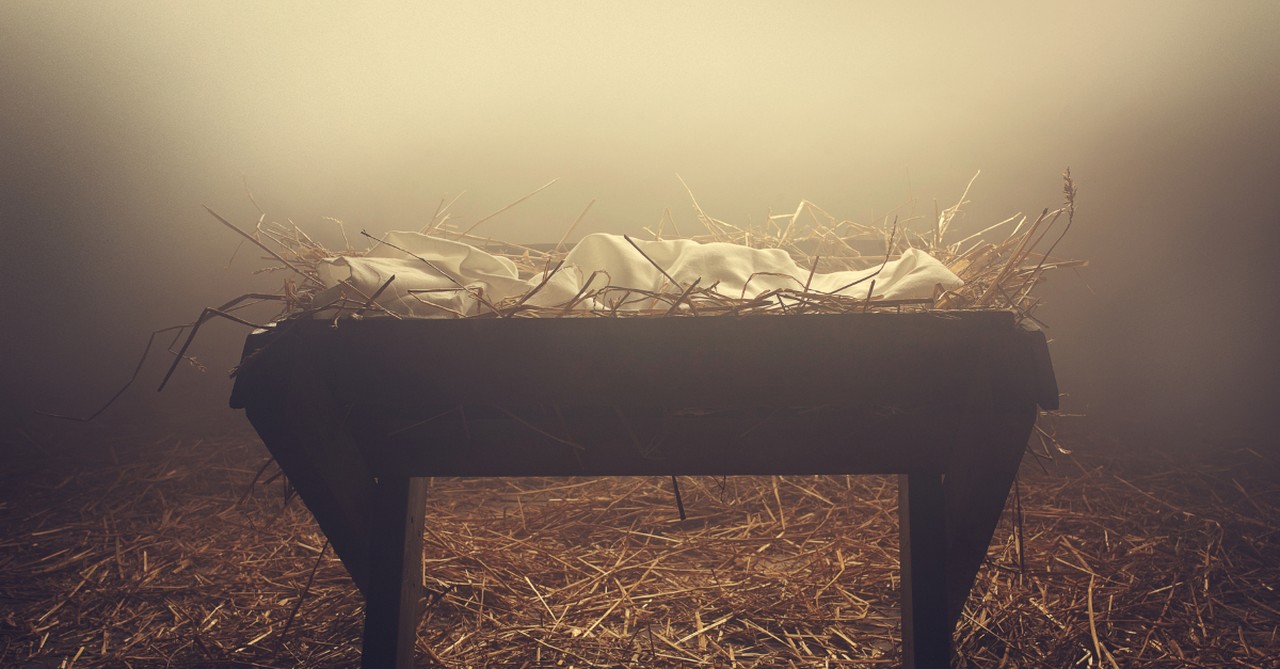
9. Away in a Manger
SLIDE 9 OF 10
Though this is polled as one of the most popular carols, it’s authorship is debated. “Away in a Manger” sweetly sings of the baby in the manger, lying peacefully amidst dire circumstances. God is not challenged by inconvenience, as proven by the way His Son made entrance into the world. He walked where we trod, looked up at the same stars we gaze upon, and succumbed to the same rotation of day and night that we exist through each 24 hour cycle of light and darkness.
On the flip side of the stars, He sits at the right hand of the Father. Born of humble nature and exalted as King of Kings, this carol truly tells the story of Jesus’ birth. Unpredictable as His circumstances might have appeared, it came to pass exactly like God said it would. The night that Jesus cried out from the manger, heaven sang praise of the One who would set humanity free from the shackles of sin by His sacrifice.
Photo credit: ©Getty Images/kevron2001
10. O Holy Night
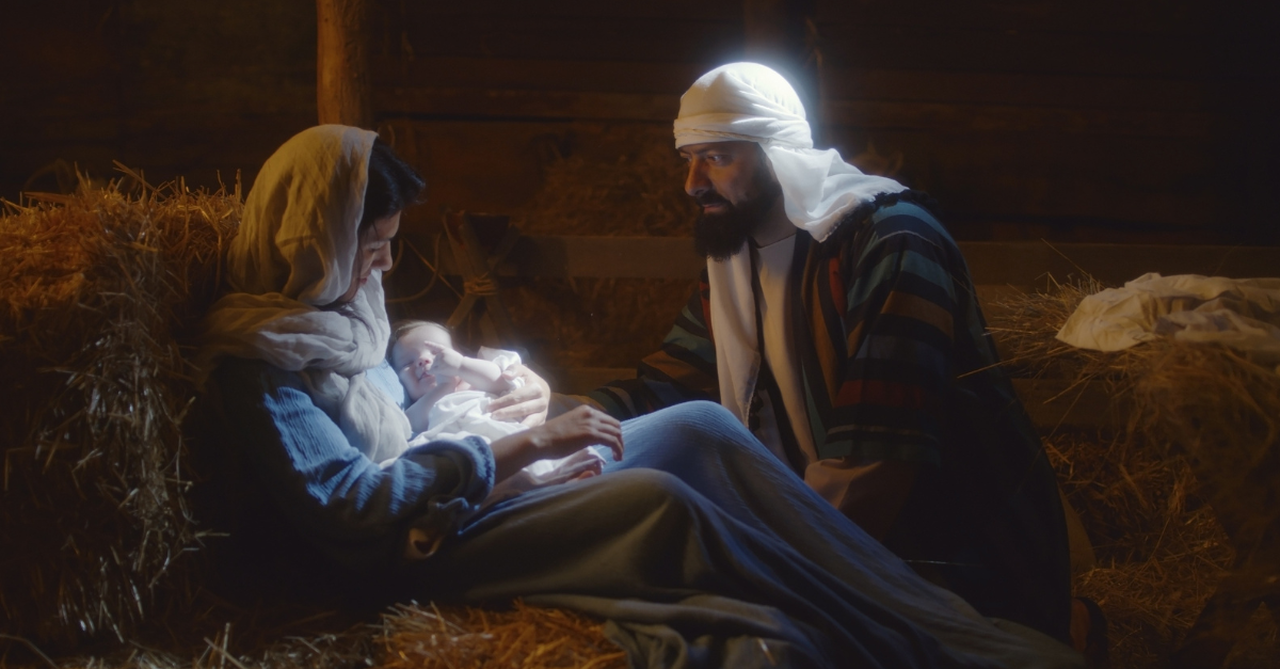
10. O Holy Night
SLIDE 10 OF 10
Adolphe Adam is credited for authorship of this carol back in 1847. One night set the course of humanity on a different plan of action. Through Jesus’ death, we are set free. One birth, out of the many that occur on earth each day, set the greater destiny of all time in motion. We are redeemed by His grace. And the angels knew He was on a different level than mere minds wrapping around fulfilled prophesy.
“Fall on your knees! O hear the angel voices! O night divine, the night when Christ was Born; O night, O holy night, O night divine!”
Merriam-Webster defines “holy” as: exalted or worthy of complete devotion as one perfect in goodness and righteousness. Christ is perfect, and Christmas is the celebratory genuflection of His choice to come into a world caked with sin to bring us home. It’s not a choice everyone will make, but everyone will have a choice; every ear will hear. “And this gospel of the kingdom will be preached in the whole world as a testimony to all nations, and then the end will come” (Matthew 24:14).
Photo credit: ©Getty Images/Evgeniy Shkolenko
Meg encourages others to seek Him first through her life as a stay-at-home mom, career as a freelance writer, teaching Emotimoms Weekly Bible Study, and leading the kids worship teams at her local church. She resides in a small, Northern lake town with her husband of ten years, two daughters, and their Goldendoodle. Meg writes about everyday life within the love of Christ on her blog, https://sunnyand80.org.
Originally published December 01, 2025.






